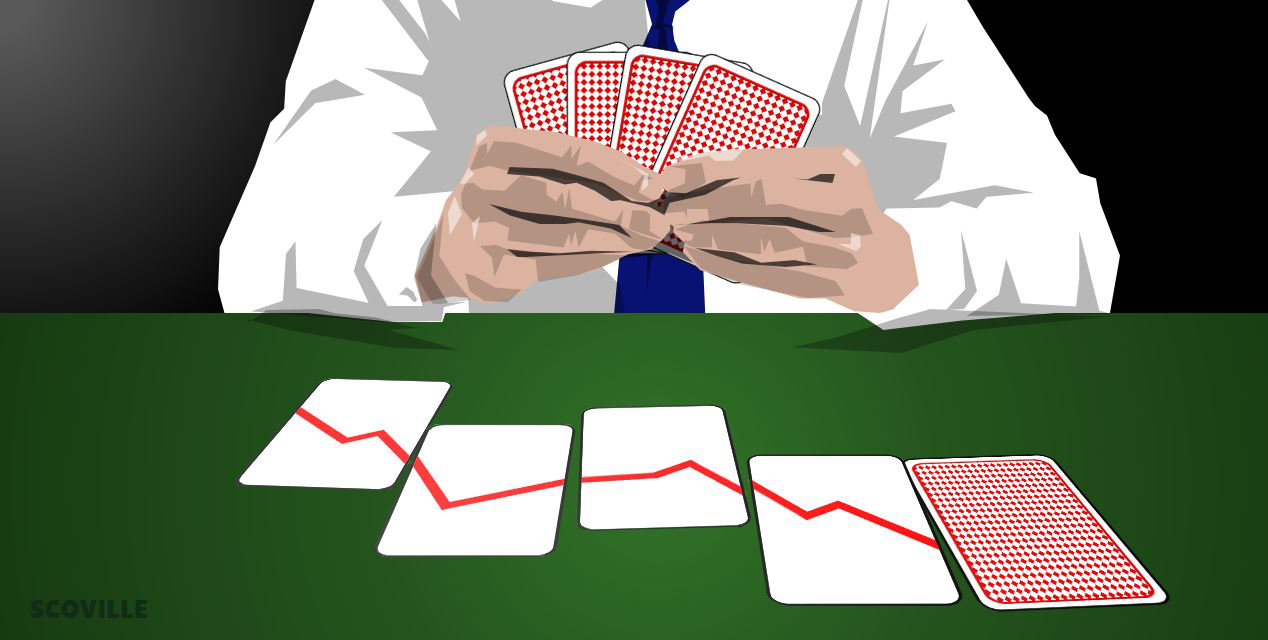In her bestselling book, Thinking in Bets, retired poker champion Annie Duke stresses an important point: As kids in school, it was regarded as a failure if we ever answered a question “I don’t know.” But, in the world outside the classroom, the only honest answer to many questions is, in fact, “I don’t know” or at least “I’m not sure.” This isn’t due to ignorance. Rather, it is because, in many cases, the precise right answer simply isn’t knowable. It’s like a card face down on a deck: You might have a guess, but you just can’t know for sure.
In a deck of cards, there are just 52 cards, but still it is very difficult to know which will come up next. When it comes to your personal finances, the number of moving parts far exceeds that of a deck of cards. The result is that it is that much harder to predict what will happen next. As Duke says, “the world is a random place.”
In fact, as a financial planner, I often find myself answering certain questions by saying, “There is no ‘right’ answer.” In other words, absent a crystal ball, there just isn’t enough information to be able to say with certainty which way something will turn out.
Consider, for example, the following questions:
Is it worthwhile to own international stocks since the dollar might strengthen?
Should I do a Roth conversion this year since tax rates might go up in the future?
Should I rush to give assets to my children since the next president might bring the estate tax limit back down?
Should I always take the largest mortgage I can?
Should I buy inflation-protected bonds, in case inflation gets back into the double digits some day?
In each of these cases — and in many more — the only honest answer is to acknowledge that no one knows for sure. One might have an opinion, and that opinion might be well-founded, but anyone who claims that their opinion is any more than an educated guess is simply fooling himself, or trying to fool you.
But if that’s the case — if so many questions are unanswerable — how can you plan for the future? I recommend a three-step process:
First, recognize that “I don’t know” or “I’m not sure” certainly are not the answer to every question. Many questions do indeed have clear answers and are not subject to debate. When you encounter a financial question, it’s important to be able to tell the difference.
Second, take solace in the fact that some questions just don’t matter. The financial world is unendingly complex, and it can be easy to get distracted by arcane questions that appear to be important. For that reason, when a question comes to mind, you always want to ask yourself whether it would make any difference to your financial future. That may allow you safely to tune out many questions that otherwise would consume unnecessary mental energy. For example, Wall Street brokers and the financial news devote a lot of their energy to speculation about the market’s day-to-day movements. But if you are a long-term investor, putting money away for a retirement that is decades away, it shouldn’t much matter to you what the market does next month or next year.
Finally, understand that “there is no ‘right’ answer” does not mean that there is no answer at all. Rather, it just means that there is more than one possible outcome you’ll want to consider. And, while there may be many, many possibilities, some will be more likely than others. I recommend that you identify the most likely outcomes and let that guide your financial plan. Be sure you have a “Plan B” in place, should things turn out differently, but beyond that, I wouldn’t spend too much time getting hung up on every remote possibility, such as a Great Depression-style stock market collapse. To be sure, extreme scenarios are entirely possible, but before you worry about extremes, I first would be sure that you are well prepared for all of the more likely scenarios.

